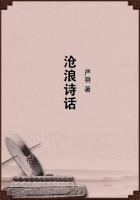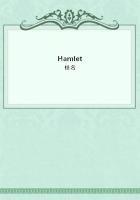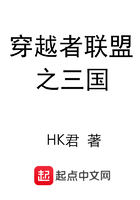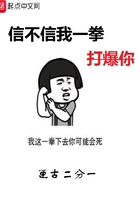`It's a long time to have been a-lingering in London,' he said; `and this is a precious hole to come and live in, even if it has been only for a week or so. Still, one hundred pound is five boys, and five boys takes a whole year to pay one hundred pounds, and there's their keep to be substracted, besides. There's nothing lost, neither, by one's being here; because the boys' money comes in just the same as if I was at home, and Mrs Squeers she keeps them in order. There'll be some lost time to make up, of course--there'll be an arrear of flogging as'll have to be gone through: still, a couple of days makes that all right, and one don't mind a little extra work for one hundred pound. It's pretty nigh the time to wait upon the old woman.
From what she said last night, I suspect that if I'm to succeed at all, I shall succeed tonight; so I'll have half a glass more, to wish myself success, and put myself in spirits. Mrs Squeers, my dear, your health!'
Leering with his one eye as if the lady to whom he drank had been actually present, Mr Squeers--in his enthusiasm, no doubt--poured out a full glass, and emptied it; and as the liquor was raw spirits, and he had applied himself to the same bottle more than once already, it is not surprising that he found himself, by this time, in an extremely cheerful state, and quite enough excited for his purpose.
What this purpose was soon appeared; for, after a few turns about the room to steady himself, he took the bottle under his arm and the glass in his hand, and blowing out the candle as if he purposed being gone some time, stole out upon the staircase, and creeping softly to a door opposite his own, tapped gently at it.
`But what's the use of tapping?' he said, `She'll never hear. I suppose she isn't doing anything very particular; and if she is, it don't much matter, that I see.'
With this brief preface, Mr Squeers applied his hand to the latch of the door, and thrusting his head into a garret far more deplorable than that he had just left, and seeing that there was nobody there but an old woman, who was bending over a wretched fire (for although the weather was still warm, the evening was chilly), walked in, and tapped her on the shoulder.
`Well, my Slider,' said Mr Squeers, jocularly.
`Is that you?' inquired Peg.
`Ah! it's me, and me's the first person singular, nominative case, agreeing with the verb "it's", and governed by Squeers understood, as a acorn, a hour; but when the h is sounded, the a only is to be used, as a and, a art, a ighway,' replied Mr Squeers, quoting at random from the grammar.
`At least, if it isn't, you don't know any better, and if it is, I've done it accidentally.'
Delivering this reply in his accustomed tone of voice, in which of course it was inaudible to Peg, Mr Squeers drew a stool to the fire, and placing himself over against her, and the bottle and glass on the floor between them, roared out again, very loud, `Well, my Slider!'
`I hear you,' said Peg, receiving him very graciously.
`I've come according to promise,' roared Squeers.
`So they used to say in that part of the country I come from,' observed Peg, complacently, `but I think oil's better.'
`Better than what?' roared Squeers, adding some rather strong language in an under-tone.
`No,' said Peg, `of course not.'
`I never saw such a monster as you are!' muttered Squeers, looking as amiable as he possibly could the while; for Peg's eye was upon him, and she was chuckling fearfully, as though in delight at having made a choice repartee, `Do you see this? This is a bottle.'
`I see it,' answered Peg.
`Well, and do you see this ?' bawled Squeers. `This is a glass.'
Peg saw that too.
`See here, then,' said Squeers, accompanying his remarks with appropriate action, `I fill the glass from the bottle, and I say "Your health, Slider,"and empty it; then I rinse it genteelly with a little drop, which I'm forced to throw into the fire--hallo! we shall have the chimbley alight next--fill it again, and hand it over to you.'
` Your health,' said Peg.
`She understands that, anyways,' muttered Squeers, watching Mrs Sliderskew as she dispatched her portion, and choked and gasped in a most awful manner after so doing. `Now then, let's have a talk. How's the rheumatics?'
Mrs Sliderskew, with much blinking and chuckling, and with looks expressive of her strong admiration of Mr Squeers, his person, manners, and conversation, replied that the rheumatics were better.
`What's the reason,' said Mr Squeers, deriving fresh facetiousness from the bottle; `what's the reason of rheumatics? What do they mean? What do people have'em for--eh?'
Mrs Sliderskew didn't know, but suggested that it was possibly because they couldn't help it.
`Measles, rheumatics, hooping-cough, fevers, agers, and lumbagers,'
said Mr Squeers, `is all philosophy together; that's what it is. The heavenly bodies is philosophy, and the earthly bodies is philosophy. If there's a screw loose in a heavenly body, that's philosophy; and if there's screw loose in a earthly body, that's philosophy too; or it may be that sometimes there's a little metaphysics in it, but that's not often. Philosophy's the chap for me. If a parent asks a question in the classical, commercial, or mathematical line, says I, gravely, "Why, sir, in the first place, are you a philosopher?"--"No, Mr Squeers," he says, "I an't." "Then, sir,"says I, "I am sorry for you, for I shan't be able to explain it." Naturally, the parent goes away and wishes he was a philosopher, and, equally naturally, thinks I'm one.'
Saying this, and a great deal more, with tipsy profundity and a seriocomic air, and keeping his eye all the time on Mrs Sliderskew, who was unable to hear one word, Mr Squeers concluded by helping himself and passing the bottle: to which Peg did becoming reverence.
`That's the time of day!' said Mr Squeers. `You look twenty pound ten better than you did.'
Again Mrs Sliderskew chuckled, but modesty forbade her assenting verbally to the compliment.















